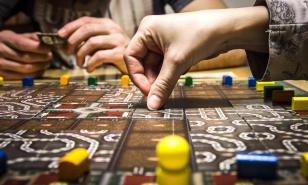10 Best Economic and Trade Board Games
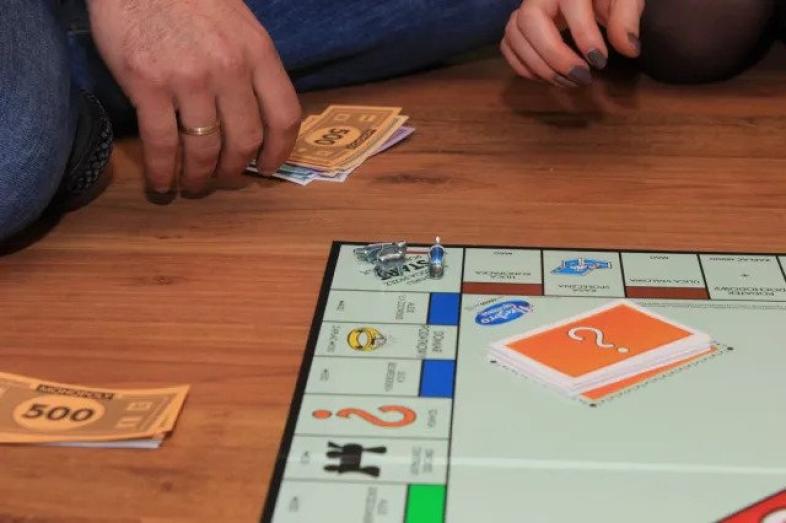
For those of us who simply cannot get enough of the real life consequences of capitalism, there exists a whole host of board games where you can get your kicks from purchasing, selling, and trading a variety of items in order to win.
10. Monopoly

Relive childhod fights in this classic market-based game.
Monopoly tops this list as the quintessential economics based board game. The reasoning is in the name - the goal of Monopoly is to build a, well, monopoly, by buying, selling, and renting property. Players earn money by passing “Go”, and roll dice to move around the board. Players can also earn money through “rent” if another player lands on their property or through selling cards, such as the coveted “Get Out of Jail Free” card. Just be careful not to land in jail yourself!
Choose This Game If You Like...
Fighting; As is the Monopoly stereotype, this game will turn friends and families against each other. Steal the property your brother or sister has been eyeing and watch the steam start to churn from their ears.
Spending Money; Monopoly’s use of fake cash gives you the opportunity to live out your billionaire spending fantasies with no real world consequences.
Nostalgia; If it’s been awhile since you’ve indulged in some good old childhood rumination, pick up your trusty old copy of Monopoly.
9. Terraforming Mars
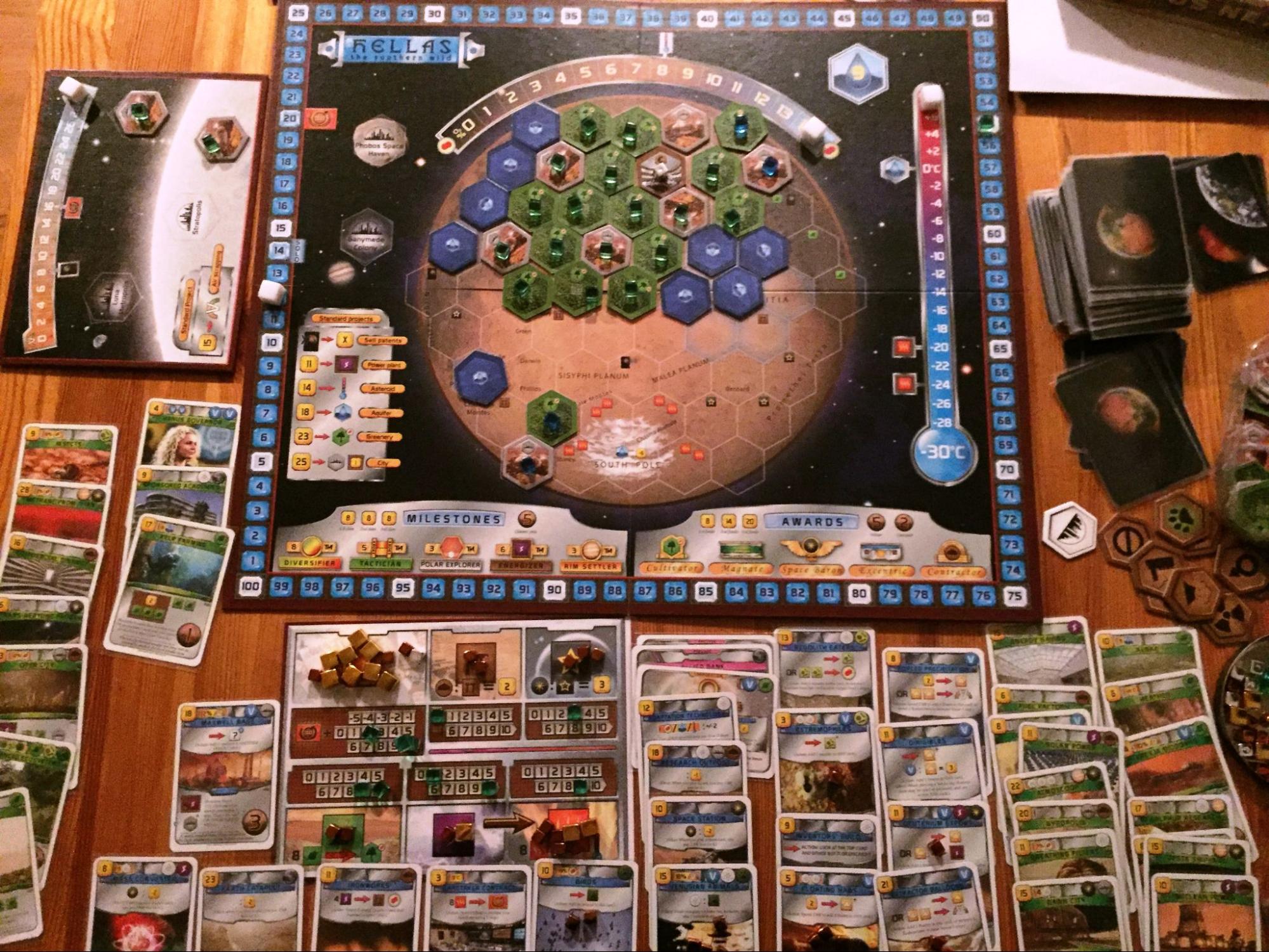
Live out your intergalactic colonizer fantasies in Terraforming Mars.
Terraforming Mars takes place in a future where corporations have been employed to terraform Mars into a habitable colony. Players work for these corporations and strive to further the terraforming project. To do so, players can buy project cards that create resources or events to help or hinder the terraforming process. The cards can be quite pricey, so players need to weigh the costs and benefits carefully before purchasing. As you help raise the global parameters, players gain “victory points”. The game ends when all three global parameters(temperature, oxygen, and ocean) reach their goal and the terraforming is complete.
Choose This Game If You Like…
- Collaborative Game Play; Terraforming Mars relies on the cooperation of the different players attempting to raise the global parameters and make Mars liveable. This being said, there is still an individual winner at the end, so don’t get too friendly with your neighbors!
- Space; The game includes all sorts of boons and obstacles that come with trying to build a colony in space, including things like asteroids and mining from the moons of Jupiter. If you’re a bit of a space nerd, you’ll enjoy this game.
- Resource Allocation; Terraforming Mars is a more resource based economics game - each player has to manage their resources and try to compete for the best places to put their city, greenery, and ocean tiles.
8. Payday
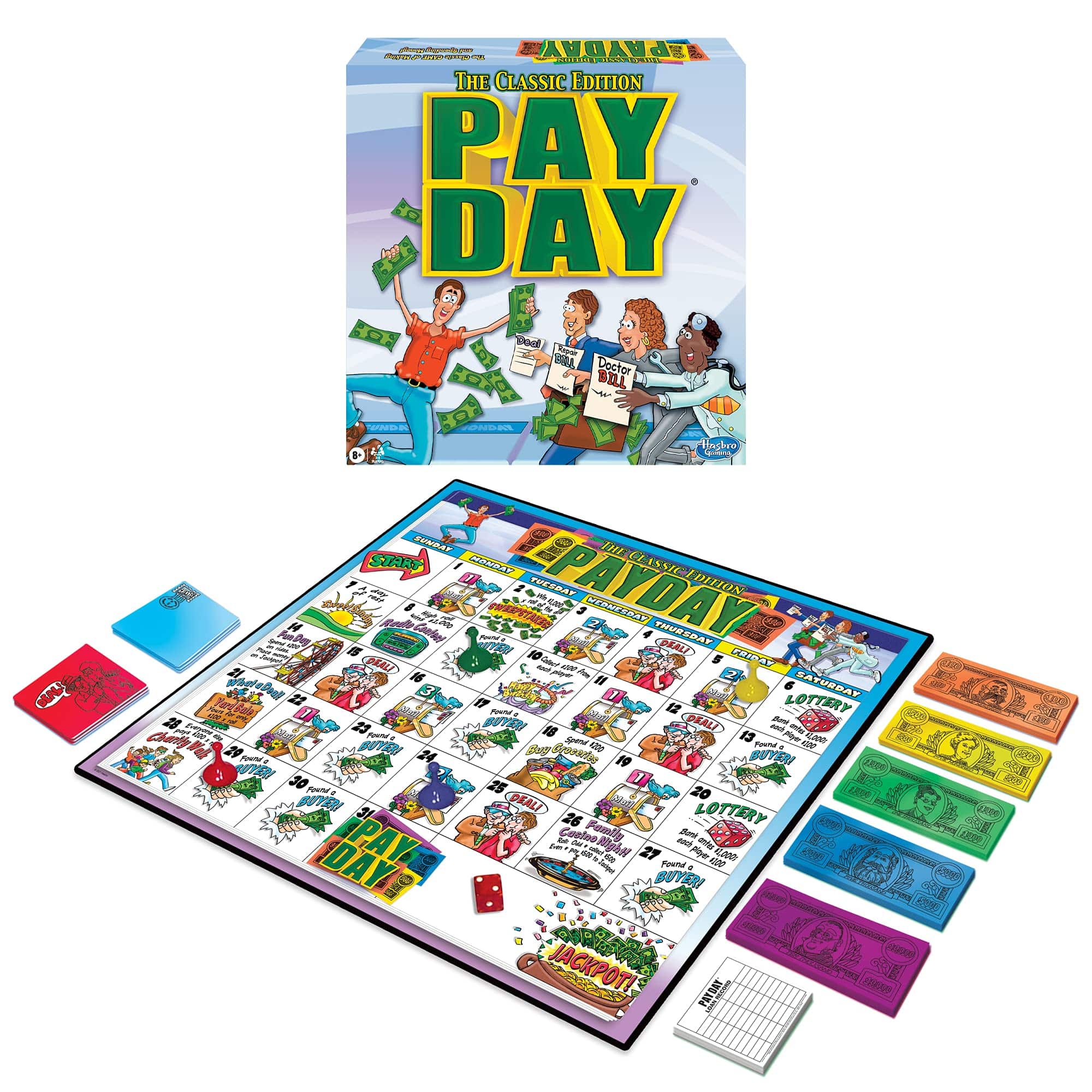
Get a hit of real-life monthly budgeting, in case the real-life stuff doesn't do it for you.
Payday is a classic money management game. The game board represents a calendar month, and players can choose how many months they would like the game to last. As they move along the board, players will have to pay expenses, collect their income, and accumulate bills. The player with the most money at the end wins.
Choose This Game If You Like…
- The Crippling Reality of Real-World Debt; Payday closely mirrors real life with its simulation of a calendar month’s worth of bills, expenses, and paydays. If you can’t get enough of that in the real world, Payday is for you.
- Adjustable Timing; Players can choose how many “months” they want to play for, meaning the game can last as long or as short as you want.
- Easy Rules; Payday is a fairly simple game that is restricted to having only 2 - 4 players. The rules are easily comprehensible and can be played with people of all ages.
7. The Game of Life

Live out the life you would rather have in the good ol' Game of Life.
Similar to Monopoly, this list would simply not be complete without The Game of Life. In Life, players pick careers and make their way across the board, earning money from paydays and miscellaneous other life events, paying taxes, buying houses, starting a family, and finally retiring. Players have to manage their money carefully to determine which retirement home they will end up in. The player with the most money at the end is the winner!
Choose This Game If You Like...
- Changeable Game Play; During Life there are several opportunities where your career or house may change in the blink of an eye. Life keeps players on their toes and reminds them not to get too complacent in their economic status!
- Fun for All Ages; Life was a staple in many people’s childhoods for a good reason. Even without knowing what the stock market is or why a mortgage was necessary to buy a house, kids of all ages could enjoy playing Life - and pick up some life skills along the way.
- Life; If you enjoy simulating the life you live already, but just doing it better then you’re sure to enjoy playing Life (even as an adult!).
6. Agricola
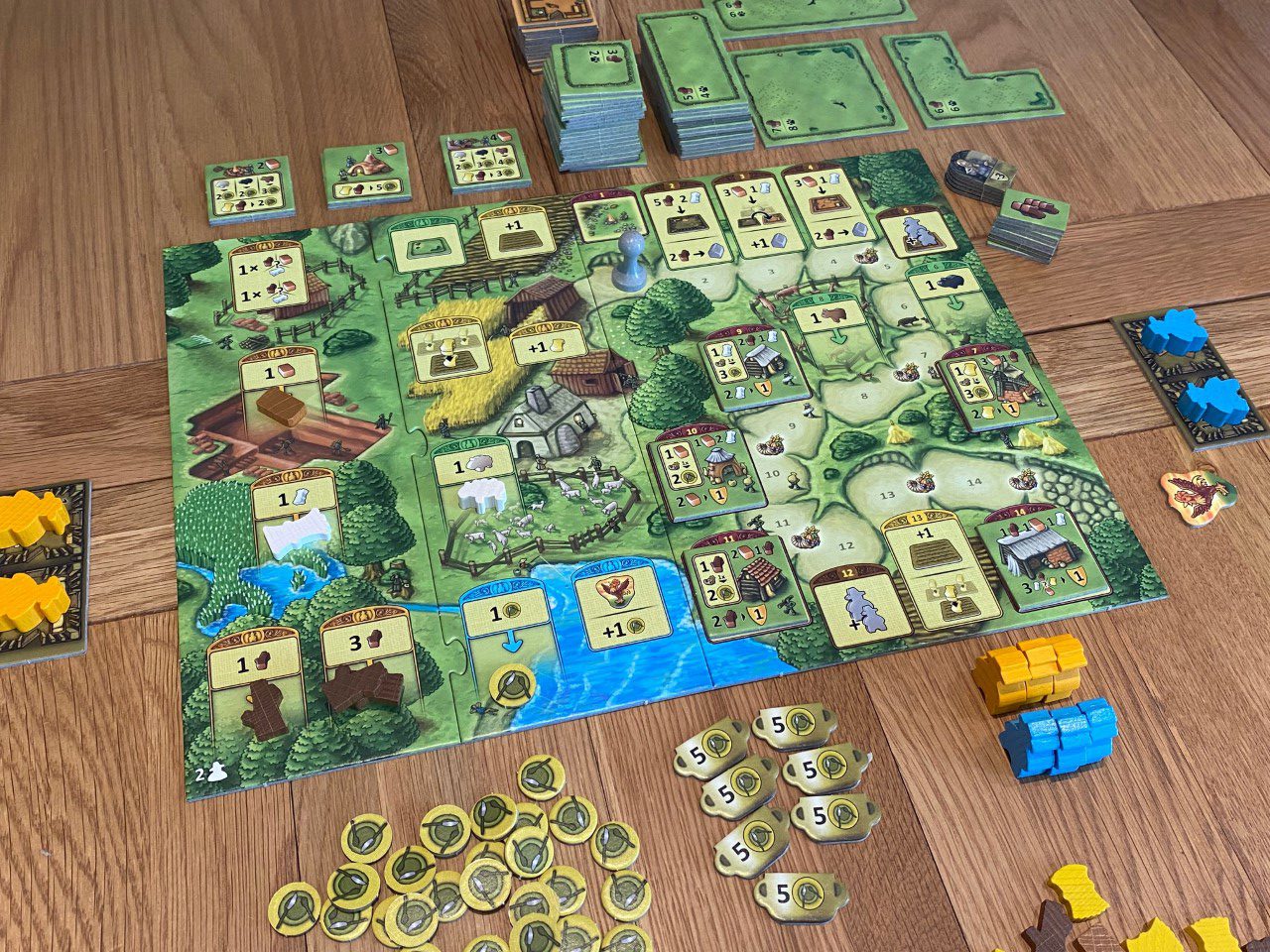
Live out your farmer's fantasies in Agricola.
In Agricola, players are farmers who live in a wooden shack with their spouse, trying to build a successful farm. Each turn, players get to take two actions: one for them and one for their “spouse”. These actions are typical of a farm - setting clay, plowing fields, and so on. As the game progresses, you can expand your home and have children to help on the farm. Players need to be sure to feed themselves, their spouse, and their children as well!
Agricola comes with three different decks of cards of varying levels of complexity to play with, and a helpful playing manual to explain how to play with the different cards.
Choose This Game If You Like...
- Stardew Valley; If you like Stardew Valley and other farming-based games, you’re sure to love Agricola.
- Strategy; There is more strategy involved in farming than first meets the eye. Players need to think carefully about the actions they want to prioritize taking on their farms in order to stay ahead of their competitors.
- Adjustable Level; With three different card decks (in the US version) the players can start simple and add in more complex layers to the game when they become more comfortable with the rules and game play.
5. Carcassonne
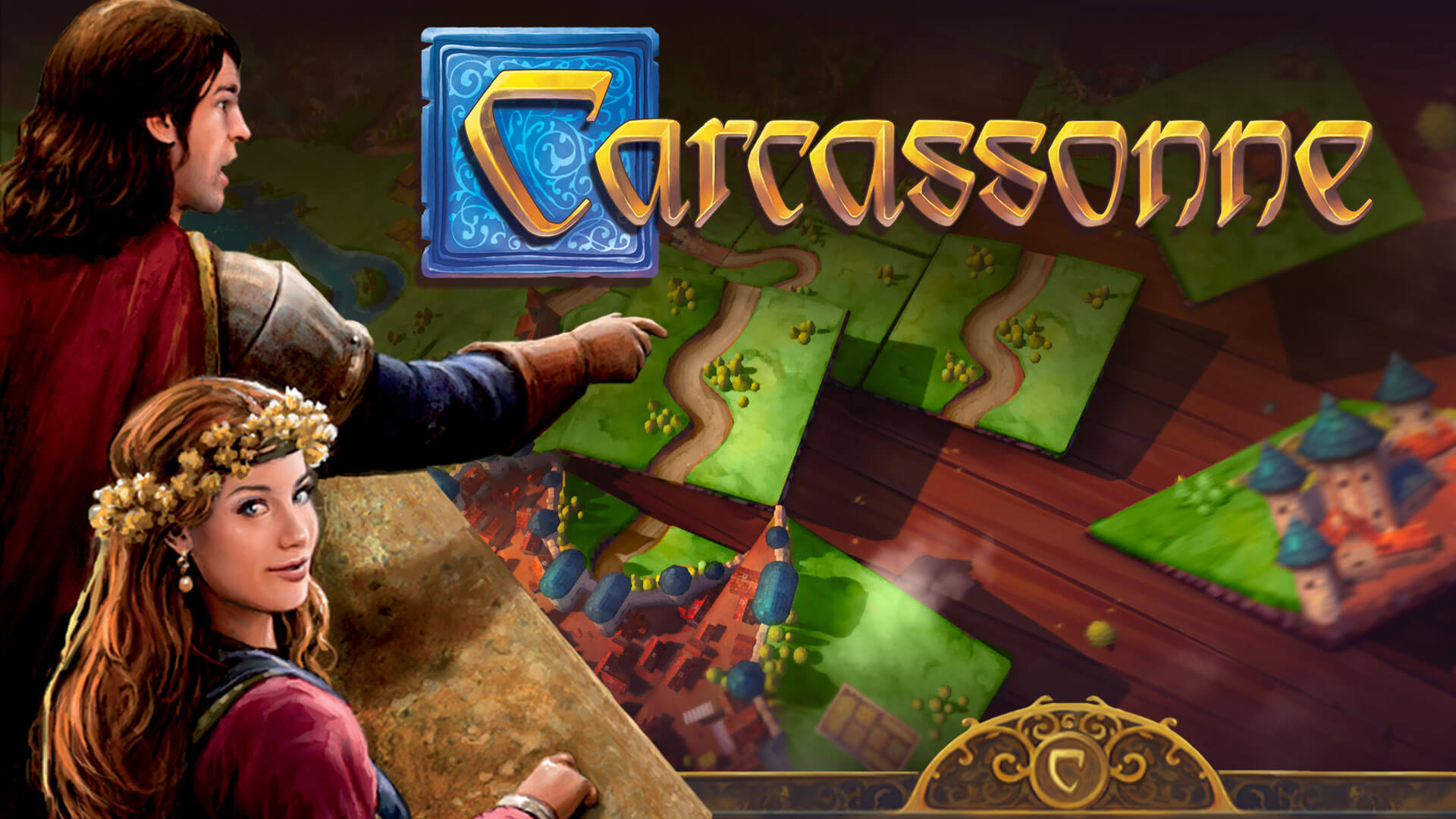
Build up your land in this historic kingdom to win points and achieve victory.
Carcassonne is aptly named after the fortified city in France. Players take turns placing tiles with pictures of the Southern France countryside on them. Tiles can feature a city, road, cloister, grassland, or a combination of each. Players have to place tiles next to each other and link up cities, roads, et cetera. After placing, players can put a “meeple”, or character, down on the space. The meeple earns money for the player. Players can strategize where to put their tiles in order to progress their own agenda, or block someone else from completing theirs.
Points are awarded for completed clusters, with the goal of having the most points at the end of the game.
Choose This Game If You Like...
- Strategy; Players should contemplate if they would be better served by blocking an opponent or progressing their own standpoint.
- Quick Game Play; Since players can only place one tile and meeple a round, the game play progresses rapidly and rounds can be completed quickly.
- Flexible Player Counts; Carcassonne can be played with as few as two players, or up to eight if you have the expansion pact.
4. Ticket to Ride

Complete quests and gain railroad monopolies in this transatlantic venture.
In Ticket to Ride, players are tasked with completing different railways across America. Players are given “ticket” task cards that show which railway path to create between different cities in order to score points. Similarly to Carcassonne above, players can choose to obstruct other player’s paths in order to make it more difficult for them to complete their tasks. Points are awarded for completed tickets and deducted for incomplete tickets. The player with the most points at the end, wins.
Choose This Game If You Like...
- Completing Tasks; The “ticket” cards guide players to creating routes between two specific cities. If you enjoy having a goal and trying to complete different tasks to earn points, then you’ll enjoy Ticket to Ride.
- Strategy; Like a lot of the games on this list, you’ll be able to use strategy to block other players from completing their routes while trying to still complete your own tickets.
- Points-Based Games; Unlike many of the games on this list, Ticket to Ride does not require money or resources or any sort of trading/buying to get ahead. Why is it still on this list you may ask? Great question - players have a limited number of train cars to use to complete their tickets. These function as a “resource” that players need to be smart about spending. Players can then earn points based on their allocation of that resource.
3. Raccoon Tycoon
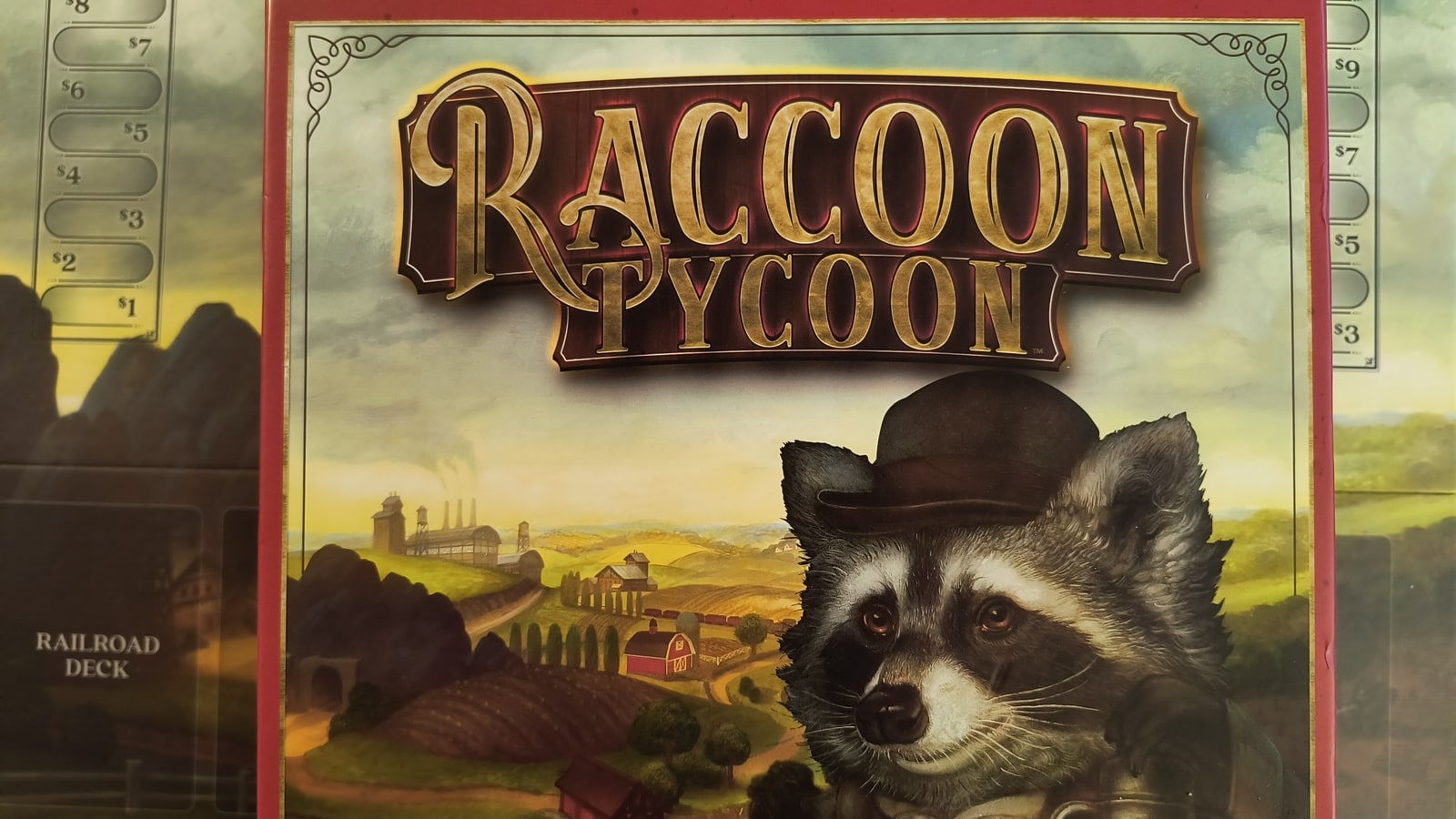
Be the suavest Raccoon in town - isn't that everyone's dream?
Raccoon Tycoon is a classic resource business game. Each player is a major producer of a resource - wheat, wood, iron, coal, or luxury goods. During their turn, players can choose to “produce” a good, which raises its value on the board. Players can then sell goods, gaining the monetary value of the good (for example, if wheat is valued at $8, and a player sells three wheat, they will get $24). When this happens, the value of the good is decreased. Players can then use their money to buy a building, a town, or win a railroad auction. Each of these actions have the opportunity for players to earn “victory points”. At the end of the game, all victory points are added up, and the player with the most wins.
Choose This Game If You Like…
- Demand Based Economics; Raccoon Tycoon’s resources follow real-life supply and demand rules. When players sell resources and increase the supply, the price of the resource is decreased.
- Multiple Winning Routes; Whether you want to focus on buying towns, amassing buildings, or winning auctions, each can get you victory points to up your score at the end. It’s up to you how you want to do it!
- Completing Steps; In Raccoon Tycoon you first have to try and up the value of your goods before selling at the opportune time and then use the money to complete other tasks to get victory points. This can take a few rounds to get enough product made to move forward.
2. Lords of Waterdeep
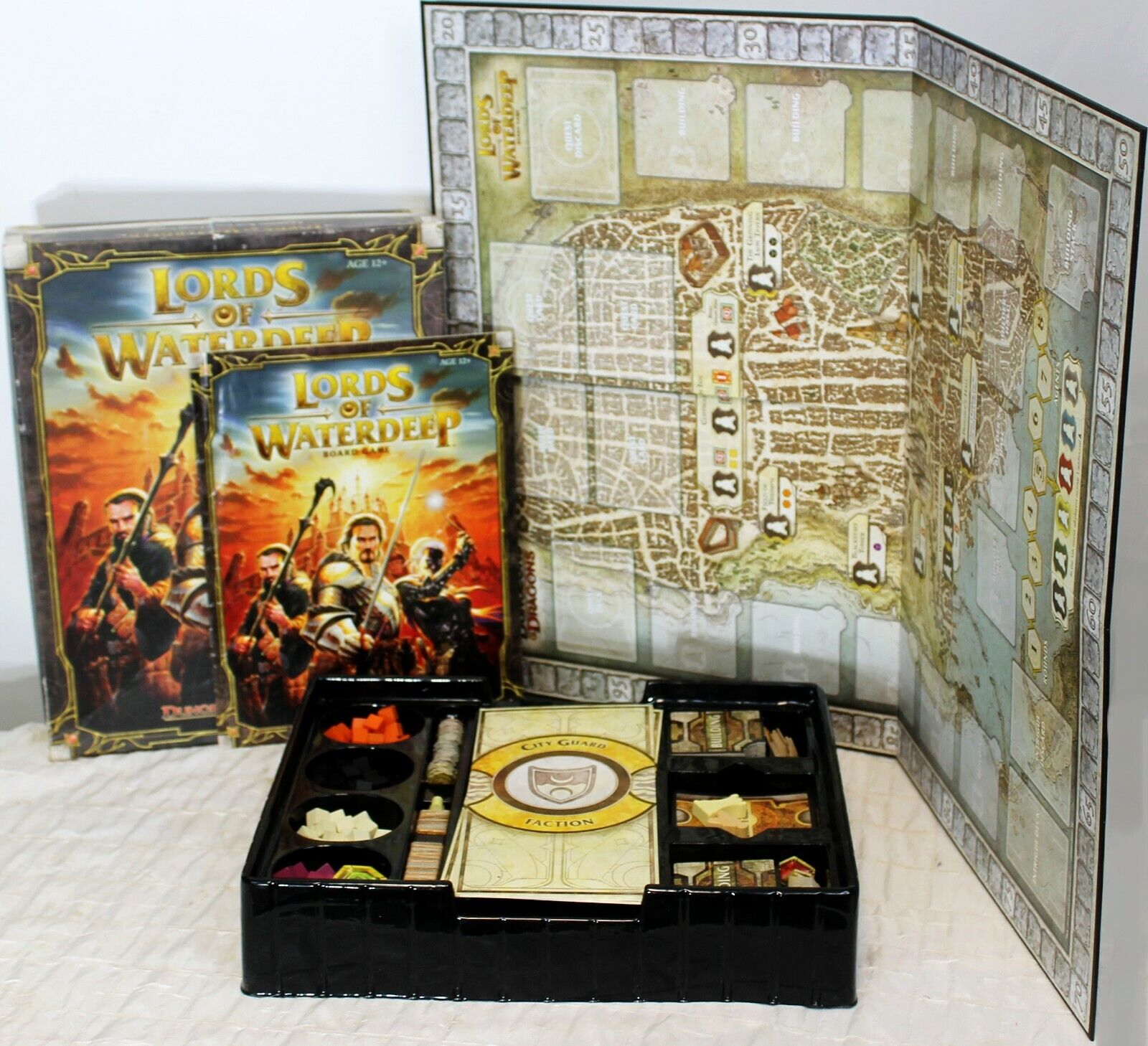
Hoard resources to complete quests and make your subjects proud.
Lords of Waterdeep is another game that combines resources with quest completion. Each player is given a Lord card, face down. The card will determine what bonuses players get for completing certain quests. Each player is given quest cards to start, with the opportunity to gain more quest cards as the game progresses. On the board are different tokens that players can claim by placing one of their meeples on the requisite place. Quests are completed when players amass the correct amount of colored tokens or coins necessary. Coins can also be used to purchase “buildings”, which have special features to afford the owner extra resources.
When players complete quests they earn victory points, and can move their character token around the board to keep track of how many they have. At the end of the game any extra points are added up to determine the winner.
Choose This Game If You Like…
- Quest Based Games; The best way to gain victory points in Lords of Waterdeep is by completing as many quests as possible with the highest numbers of victory points. This makes the game a great choice for players who enjoy having tasks to complete and work towards.
- Roles; Each Lord has a different type of quest that will get them bonus points at the end of the day. This helps give a bit of variety to the game play and affects which quests players are going to focus on completing.
- Amassing Resources; Lords of Waterdeep revolves around players’ ability to amass resources that can then be used for quests or purchasing buildings. There are a limited number of resources so if a player hogs all the tokens of a certain color, the rest will be left high and dry.
1. Catan
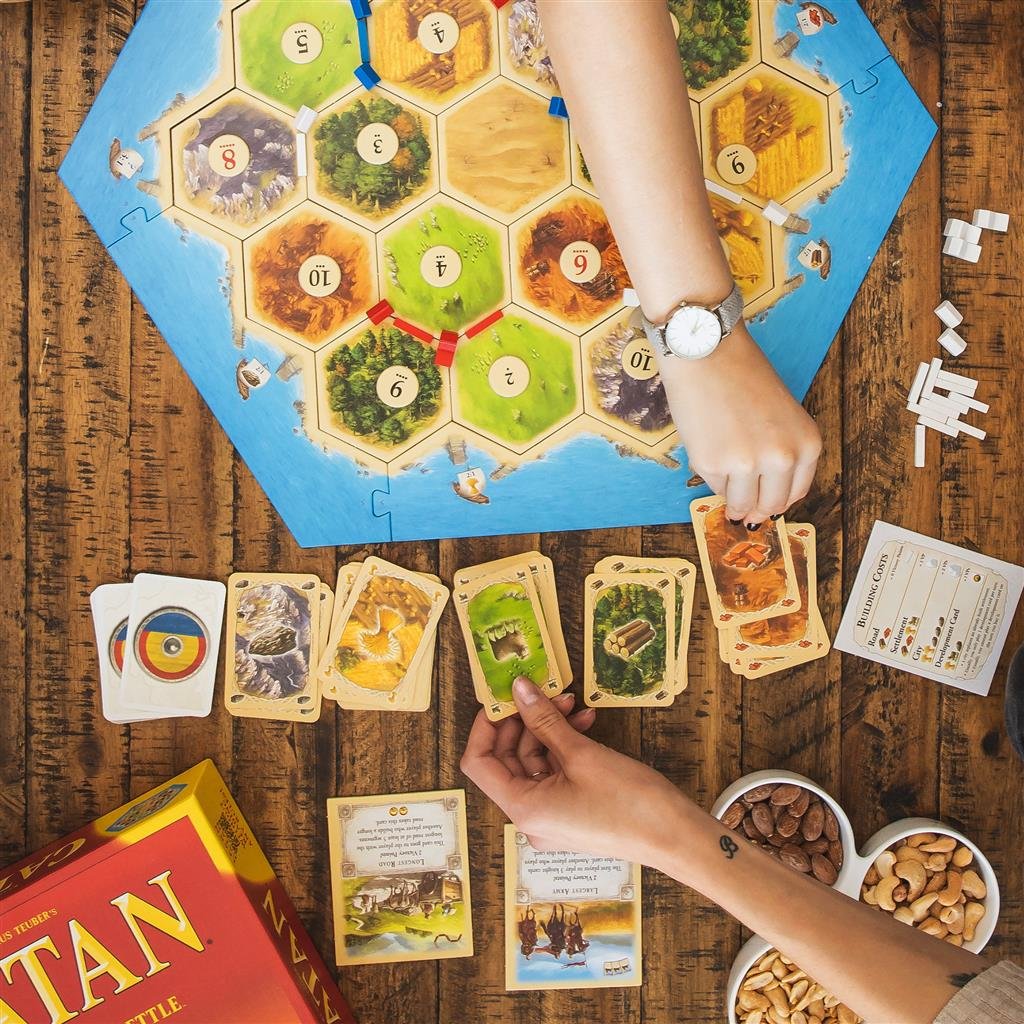
Build up resources, towns, and villages in this classic board game.
Catan is probably the game most think of when asked to name an economics or trade based game. In Catan, players take on the role of settlers. They buy and trade in order to amass resources. A dice is rolled at the beginning of a turn to determine which “hexes” or hexagonal tiles earn resources. Resources can then be used to build roads and towns, or upgrade an existing town to a city. Having a city can increase how many resources a player gains when the dice roll lands on or adjacent to their hex.
Players gain victory points as their settlements grow in size, with the goal of having the most victory points at the end of the game.
Choose This Game If You Like...
- Trading Resources; Like many games on this list, Catan relies on trading resources to build settlements that will yield victory points at the end of the game. If you enjoy allocating and reserving resources to build your settlement, you’ll enjoy Catan.
- City Building; Like Carcassonne, the more you build in Catan, the more points you will earn. Building roads and cities takes time and patience and can take a few rounds to get moving.
- Strategy; Between building settlements to block other players and using the Robber token to stop an opponent from earning resources, strategy plays a large part in winning Catan.
- Log in or register to post comments
 Home
Home PC Game Trailers
PC Game Trailers News
News Menu
Menu








